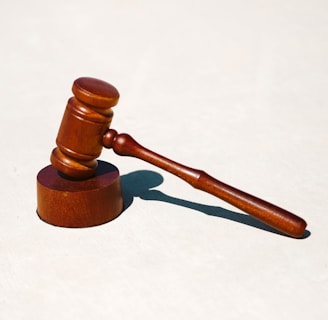Presumption Of Innocence: You Are Innocent Until Proven Guilty
“I don't want to repeat my innocence. I want the pleasure of losing it again.” ― F. Scott Fitzgerald
MENTAL MODEL


You are innocent until proven guilty. The presumption of innocence is a fundamental legal principle which considers anyone accused of a crime innocent unless there is compelling evidence of their guilt. If the prosecution odes not prove the charges true, the person is free. In most countries today, the presumption of innocence is a legal right and it is an international human right stated by United Nations. The polar opposite of this is the presumption of guilt: you are guilty until proven innocent.
More broadly, this principle underscores how we judge and assume people and situations. If we view actions, people, and ideas as valid until we have sufficient evidence to challenge them, we open ourselves to a world of possibility. Until credible proof is presented, why shouldn’t we assume it to be righteous, beneficial, valuable, or what have you? This even helps fend off biases and unjust stigmas against things, events, and people. Think of it like this. When the media covers someone and prematurely labels them guilty, most people take that as fact. Though if we employ this model, we’d look for compelling evidence to prove them guilty before casting judgment.
This principle is essential for the integrity of the justice system. It’s a human right for a reason: it ensures that state power is not abused. In fact, in many democratic countries, this law is among the most heavily valued and safeguarded legislations. Beyond the courtroom, this acts a mental model to delay judgment until relevant evidence is available. Take an interpersonal dispute. Withholding judgment until a thorough investigation is conducted results in a more multifaceted response. The worker isn’t a lazy prick who is always late. Assume innocence: they probably got stuck in a traffic jam or had a family emergency.


Real-world examples of presumption of innocence:
Criminal Justice: in many judicial systems, a defendant is legally presumed innocent. The prosecutor bears the burden of proving guilt beyond reasonable doubt. This ensures convictions are based on strong evidence. Wrongful imprisonment risks go down.
Media Discourse: when public figures are accused of misconduct, the media and public often rush to judgment. Everybody knows this: society sprinkles salt on the open wound and rubs it in. Operating under the presumption of innocence you would wait until data rolls in to make a data-driven conclusion on the individual.
Workplace Conflict: in a corporate setting, an employee could face allegations of unethical behavior. An organization that applies the presumption of innocence would conduct fair, unbiased investigations before taking action. This would ensure the employee isn’t unjustly penalized based on incomplete information.
Academic Integrity: when allegations of plagiarism rumor, academic institutions have to investigate thoroughly prior to action. Presuming innocence until evidence is verified helps maintain a fair environment and protects the reputation of scholars.
How you can use the presumption of innocence as a mental model: (1) stop and think — when faced with allegations, consciously withhold judgment until you reach conclusive evidence, “Do I have all the facts, or am I forming an opinion based on limited information?”; (2) fairness above all — ensure that in your decision-making, be it legal, corporate, or personal, you rely on evidence before drawing conclusions; (3) educate and advocate — in discussions, highlight how important presuming innocence is in combating premature judgments, especially in controversial situations; (4) reflect on your stupidity — assess your own reactions and snap judgments, seeking to improve over time by seeking objective evidence as much as possible; (5) check don’t assume — before judging anyone or anything, don’t assume that you have all the knowledge and go out there and check for yourself (e.g. ask that late employee why they were late instead of assuming them irresponsible).